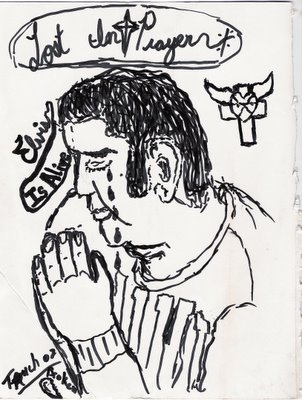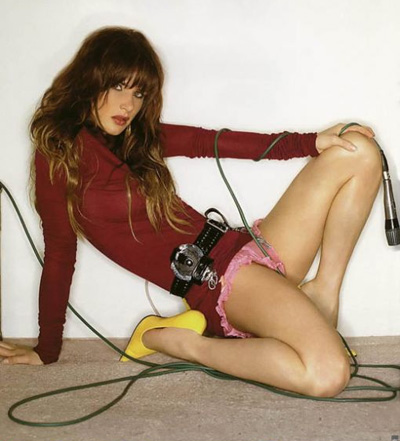Lost in Prayer

This is one of my favorite things. I found it on the inside cover of a telephone book in a cheap motel just outside Memphis. The telephone book was lying in the night table, resting on top of the Bible like a hand covering a fluttering heart.
For some reason it says everything to me about Elvis. I don't think Elvis will ever go away because the contradictions of his character, his painfully obvious faults, his intense sincerity, and his dangerous faith in his own destiny can not be resolved to fit the bill of a conveniently tragic hero. The story of his life is resonant, and it's become part of what our culture is about. That's what the "Elvis is alive" part says to me.
It'd be cliched to go on about all that, though his story is fascinating. (I'm half way through Peter Guralnick's two volume biography of Elvis, Last Train to Memphis and Careless Love. Recommended.)
So there's Elvis, head bowed, lost in prayer.
This piece is now part of a private collection in Menlo Park, California.

